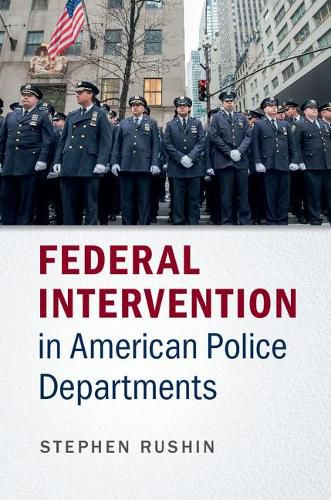Readings Newsletter
Become a Readings Member to make your shopping experience even easier.
Sign in or sign up for free!
You’re not far away from qualifying for FREE standard shipping within Australia
You’ve qualified for FREE standard shipping within Australia
The cart is loading…






For much of American history, the federal government has played a limited role in local police regulation. That all changed in 1994, when Congress passed a little known statute that permitted the US Attorney General to reform troubled police departments. Since then, many of the nation’s largest police departments - including those in Los Angeles, Chicago, Seattle, Washington, DC, New Orleans, Pittsburgh, Cincinnati, Cleveland, and Albuquerque - have been subject to federal oversight. But until recently, we’ve known little about how this federal process works. Drawing on original interviews, court documents, statistical data, and media reports, this book provides the first comprehensive account of federal intervention in American police departments. It shows that, under the right circumstances, federal intervention is uniquely effective at combating misconduct in police departments. However, federal intervention is far from perfect. This book concludes by arguing that Congress should expand and improve federal oversight of policing.
$9.00 standard shipping within Australia
FREE standard shipping within Australia for orders over $100.00
Express & International shipping calculated at checkout
For much of American history, the federal government has played a limited role in local police regulation. That all changed in 1994, when Congress passed a little known statute that permitted the US Attorney General to reform troubled police departments. Since then, many of the nation’s largest police departments - including those in Los Angeles, Chicago, Seattle, Washington, DC, New Orleans, Pittsburgh, Cincinnati, Cleveland, and Albuquerque - have been subject to federal oversight. But until recently, we’ve known little about how this federal process works. Drawing on original interviews, court documents, statistical data, and media reports, this book provides the first comprehensive account of federal intervention in American police departments. It shows that, under the right circumstances, federal intervention is uniquely effective at combating misconduct in police departments. However, federal intervention is far from perfect. This book concludes by arguing that Congress should expand and improve federal oversight of policing.